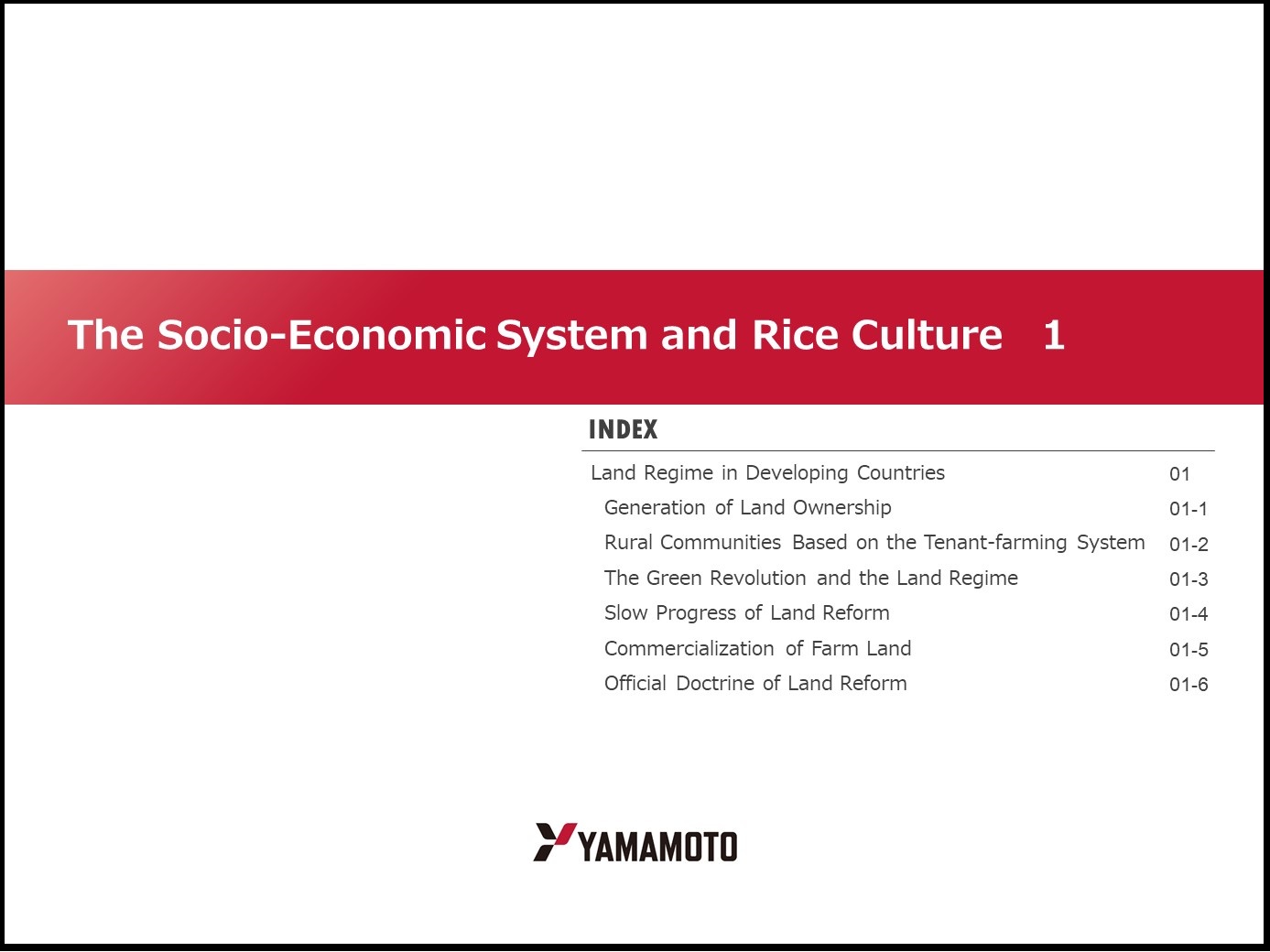20. The Socio-Economic System and Rice Culture 1
- INDEX -
Land Regime in Developing Countries
Generation of Land Ownership
Rural Communities Based on the Tenant-farming System
The Green Revolution and the Land Regime
Slow Progress of Land Reform
Commercialization of Farm Land
Official Doctrine of Land Reform
Land Regime in Developing Countries
The land regime assumes various complex forms, reflecting not only the natural conditions but also the historical, social and economic situations of the area. In ancient days, a farmer probably owned as much land as he and his family could cultivate, and made the best use of it to obtain enough food to support the family. Therefore the land size owned depended on the labor force of the family. As the social system became sophisticated, land began to be considered as an object for right and interest between the lord and inhabitants of the manor. The lord charged taxes on land, and a tenet farmer had to pay rent for tenacy to the land owner. In the history of any country, the land system has played an important role in social stratification such as governing class and subordinate class. For example, the situation in Indonesia and the Philippines in relation to that of Thailand, where merchandizing of rice is most advanced, will be described in the following.
Generation of Land Ownership
In Thailand, differentiation of the concept of farming right from that of land ownership began in the middle of the nineteenth century, when merchandizing of rice had been developed. By that time, farmers did not need to claim ownership of the land they cultivated, so long as the usufructuary right was ensured. When rice trading began and rice-cropping was commercialized, however, land owners began trying to make best use of the land, investing money to increase the land productivity. Since contentious cases of land dispute frequently occurred, there was a need to establish the right of ownership.
Rural Communities Based on the Tenant-farming System
The socio-economic system of the rural communities is based on the tenant-farming system, which is made up of land owners, owner farmers, tenant farmers and landless rural workers. The composition of the tenant system is complicated and deeply connected to the socio-economic conditions of each community. Since the communities have been governed by the share-renting system for many years, a lord-vassal relationship definitely exists between land owners, tenant farmers, and landless workers. Problems such as high rent for tenancy, shaky farming rights, land ownership with ever shrinking land area, etc., have become apparent.
